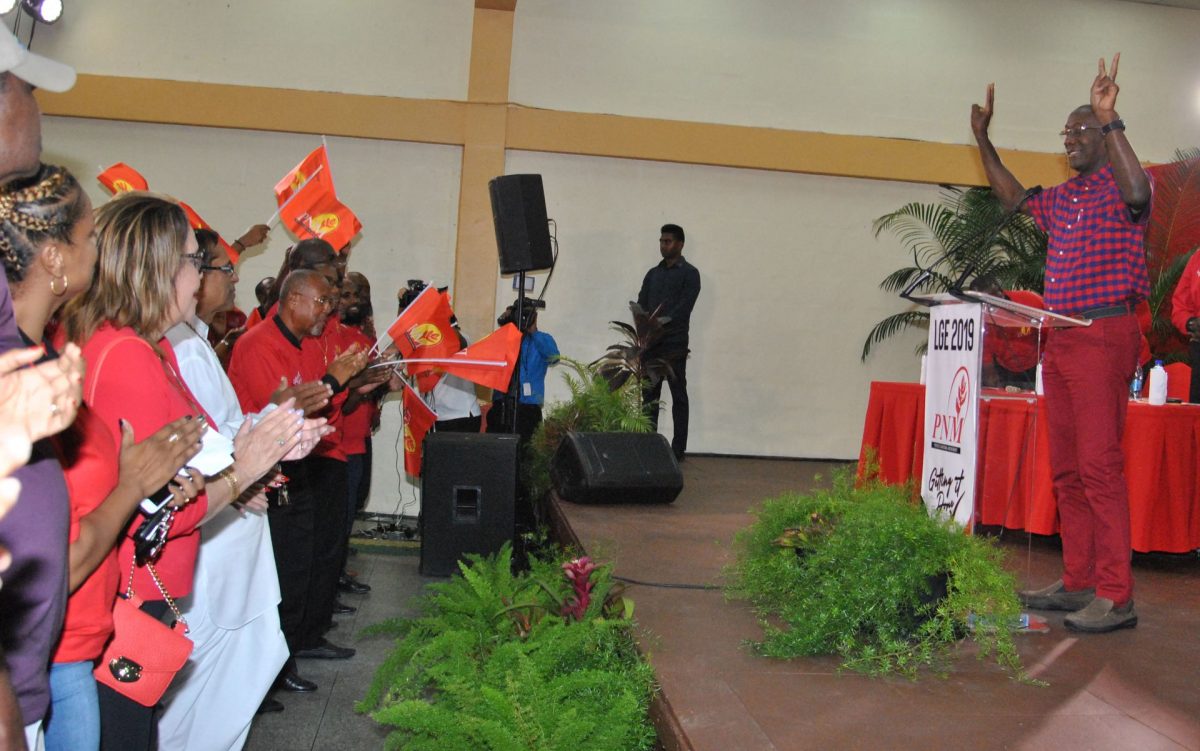(Trinidad Guardian) Legislation to have marijuana decriminalised is to be laid in Parliament today.
The announcement of the long-awaited legislation was made by Attorney General Faris Al-Rawi at last nights People’s National Movement (PNM) Local Government election meeting in La Horquetta.
“Our Cabinet today (yesterday) under our Prime Minister today (yesterday) approved for laying tomorrow in the Parliament, two pieces of law. One the amendment to the Dangerous Drug Act to decriminalise the possession of marijuana,” he said.
The Cabinet also approved the laying of the Cannabis Control Authority bill.
Al Rawi explained the legislation proposes to allow persons to have up to 30 grammes of marijuana in their possession.
He added persons in possession of 30 to 60 grammes of marijuana will be issued a fixed penalty notice by police.
Once paid on time, AG Al Rawi said this will not affect a person’s criminal record.
However, he noted failure to do so, the offender may face a fine of up to $50,000.
The AG made it clear that persons will not be allowed to smoke marijuana in public spaces, including the workplace, or while around children.
Al Rawi also revealed people who have a conviction or charge in relation to under 60 grams of marijuana will be allowed to apply to the court to have it dismissed and removed from their criminal record.
In making the announcement, Al-Rawi said that the courts were clogged by cases of marijuana possession.
As many as 85,000 matters clogging up the court system today has to do with marijuana possession.
He also stated approximately 500 people “currently sit down in a jail” because they can’t access bail, costing taxpayers around $700 million.
He said decriminalising marijuana, will “free up 60 per cent of Forensic’s workload” and allow the court to focus on more serious crimes.
Al-Rawi, speaking at the PNM local government meeting in La Horquetta last night, said that it was figures like those that were driving the need to decriminalise marijuana.
“Hence the idea and genesis of decriminalising marijuana,” he said.
Al-Rawi said from 2007 to 2018 there have been 84,668 matters for possession of marijuana in the courts.
“In 2018 alone, 8,316 people came before the magistrate court for possession of marijuana possession alone, Al-Rawi said.
He said if those 8,000 cases were removed from the courts, it significantly reduced the number of cases judges heard and effectively sped up the judicial system.
He said it was not just people coming before the courts but those who are incarcerated and sent to jail.
“For the period 2010 to 2018, 2,407 people were put into Remand Yard together with 991 people for trafficking, 41 for cultivation,” he said.
Al-Rawi said roughly 500 a year were incarcerated in pre-trial conditions, which means they have not been to court and cannot access bail.
Those 500 people are unable to access bail because they have no assets to bail themselves out of prison on bailable offences.
“These include people who use cannabis for medical purposes, for epilepsy, people caught with it and the man next to you had it and you get taken down,” he said.
He said the cost of those arrests and incarceration are borne by taxpayers.
He said it costs taxpayers between $15,000 and $20,000 per prisoner per year to keep those persons in jail.
“Taxpayers pay for prison officers, warrant officers, policemen, food and electricity in prisons, Justice on Time for transport,” he said.
He said as much as $617 million was spent by taxpayers every year to maintain the current system.
He said if marijuana was decriminalized, it freed up the courts to deal with other matters.
“Marijuana is classified as a dangerous drug, under the dangerous drug act, it has a law and a law to regulate it and marijuana has been subject to this Dangerous Drug Act, where possession of marijuana means you are in possession of a dangerous drug and if you are in possession of a dangerous drug, if a policeman finds you with that, you can find yourself on a charge,” he said.
“But Aunty Kamla has rolled out, saying that they will deal with it, and pass laws to deal with it,” he said.
“We want to treat with this dangerous drug thing so the magistrate and court could focus on rape, aggravation, murder whatever serious crimes,” he said.
He said Persad-Bissessar had 10 years to change the law but never did however the PNM was looking at licensing the growth and medical usage.
Meanwhile, Prime Minister Dr Keith Rowley said he was disappointed to learn that millions of dollars were being spent to process marijuana offenders.
He said he knows some people will be against the changes but noted that this will rebuild family relationships.
He also assured the Government will ensure there is a proper management system in place.
Just this month Opposition Leader, Kamla Persad Bissessar, promised to decriminalise the herb while addressing UNC supporters at the Couva South Multi-Purpose Hall.

